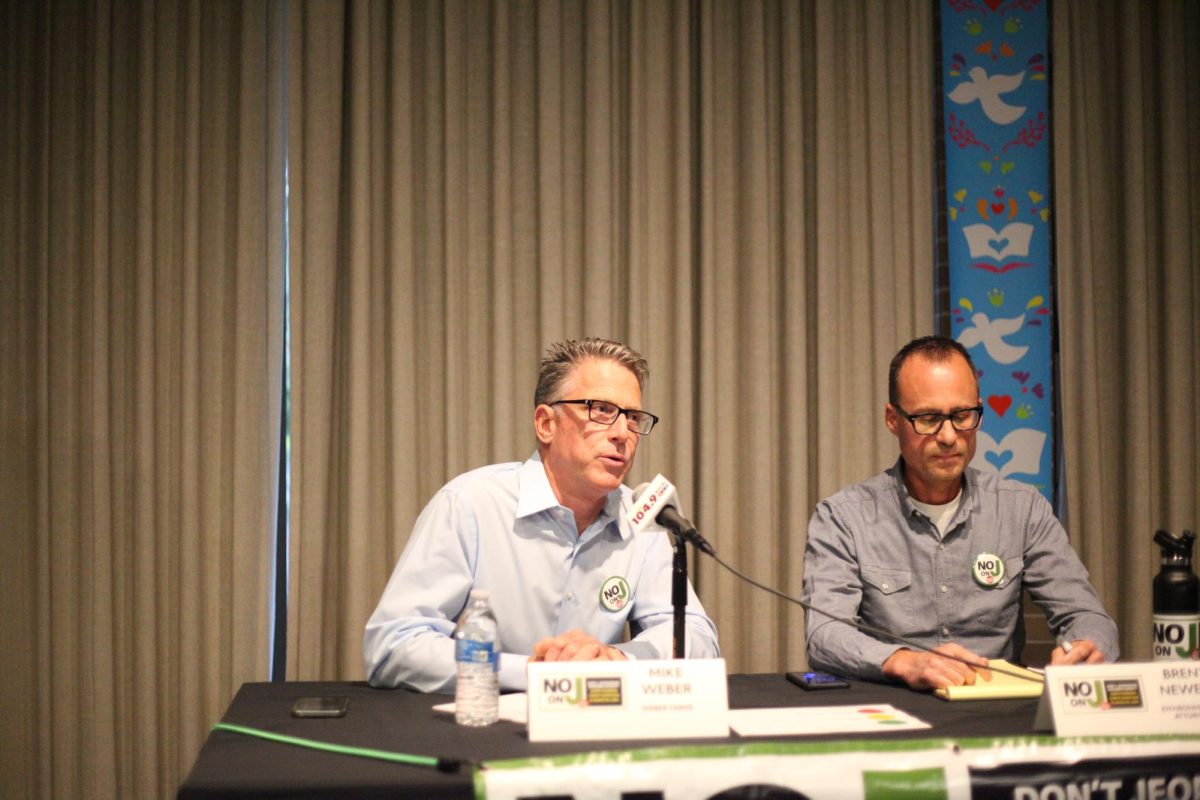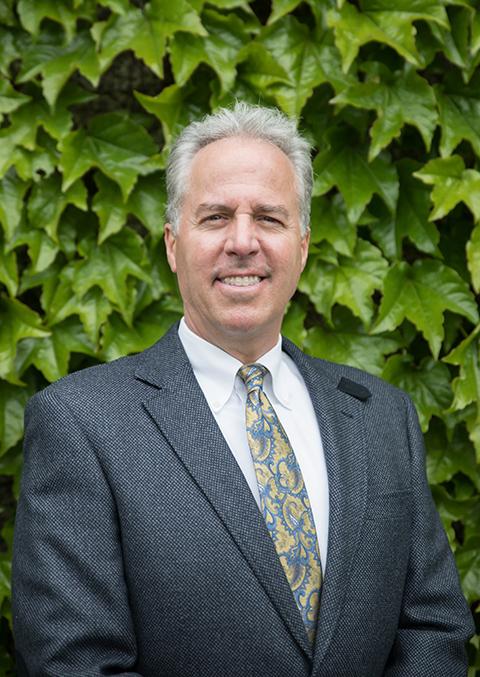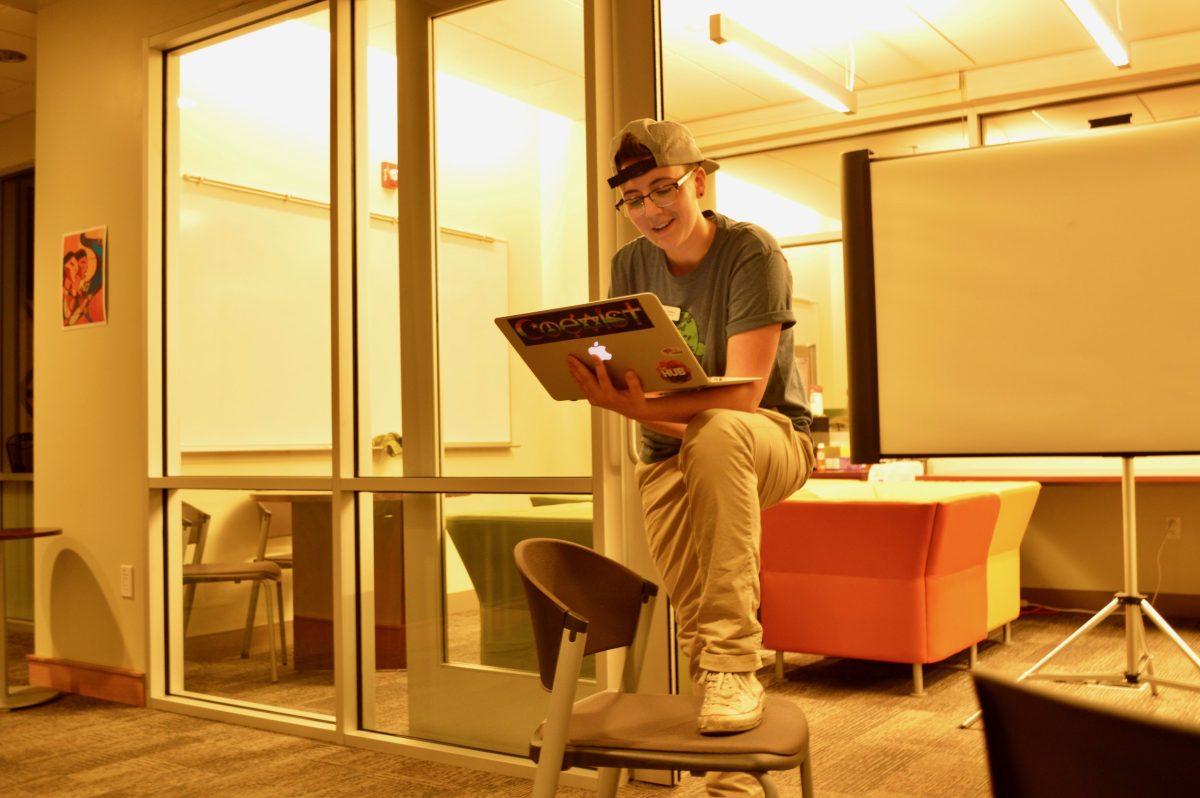Last Tuesday’s elections brought a new wave of hope and progress for the transgender community when, according to ThinkProgress, eight openly transgender candidates won their positions.
Max Luque, a senior English major, described his initial reaction to the election results as a “pleasant surprise,” given ongoing bigotry and misunderstandings about trans identities.
Luque said he saw the results as a message that the community will not reinforce hate and looks to promote progressive thinking.
Carly Solberg, a women and gender studies major and president of the Queer-Straight Alliance, said the election’s outcome is “powerful” and noted that more people are learning to be accepting of all identities.
Luque, who identifies as transgender, said having a transgender person as a public figure, whether in politics or media, can help the public’s awareness of trans issues.
He explained how figures in media such as the actress Laverne Cox and Caitlyn Jenner, Olympic gold medalist and TV personality, have helped with visibility for the trans community.
Luque and Solberg agreed on the importance of having transgender people in public office for visibility.
While cisgender allies have supported more progressive policy reform, transgender people will always have “their identities at the forefront of their minds,” according to Solberg.
Queer studies courses provide “language and concepts” for politicians who are creating more justice-oriented policies and for voters who are deciding which candidates they want to support, Solberg said.
“In life after college, you are going to meet queer people,” Solberg said. “You are going to see people using different pronouns and people identifying with different gender and sexuality labels.”
Solberg said they encourage all students to take queer studies courses.
One such course is the queer studies lecture series, a one-unit area C2 general education class offered every spring at Sonoma State University.
The class, which provides an environment to discuss a range of identities, hosts twelve speakers from around the U.S. who are artists, activists, scholars, or students.
Over 200 students enroll in the queer studies lecture series every spring, and they can take it multiple times for credit.
Luque said he has lukewarm feelings about the lecture series. During the few times that his class disscussed trans issues, he felt uncomfortable in the space due to problematic comments made by other members of the class.
Luque acknowledged that Don Romesburg, a women and gender studies professor who teaches the class, does advocate for trans people.
Both Luque and Solberg said they would love to see a transgender professor teaching a class about queer identities, reinstating the visibility’s importance.
Romesburg said he came to Sonoma State in fall 2008, when the queer studies concentration was officially added.
Although the concentration will be approaching its 10th anniversary at Sonoma State next fall, Romesburg said Sonoma State has offered classes on gender since the 1970s.
“I think LGBTQ studies [play] an important role in raising awareness and consciousness about the worth and dignity of lesbian, gay, bisexual, transgender, and queer people’s lives,” Romesburg said.
Shortly after deciding to attend Sonoma State, Solberg contacted Romesburg about the women and gender studies major and was able to sit in on a queer theory course. Solberg said this helped solidify their choice of study.
“There is a lot of stigma around a [women and gender studies] major being useless,” Solberg said.
Solberg, who aspires to be a professor of gender and sexuality, said they look up to the professors in this close-knit department.
According to Romesburg, there are around 20 to 30 queer studies minors per year.
“In history, one group that you hear absolutely nothing about is queer people,” Luque said.
Solberg and Luque both recalled that no talk of LGBTQ history or issues came up in a classroom setting prior to their studies in college.
“When you’re a kid growing up in our school system, you don’t see yourself anywhere if you are queer,” Luque said. “I think that is really sad and isolating for many people. Our society is set up for people to assume that everyone is cis and straight.”
Romesburg, who has a PhD in history, came up with the idea for a new class focusing on LGBTQ U.S. History. The class is an area D3 general education class, and is “the first non-history department GE being offered at Sonoma State,” according to Romesburg.
For more information about the queer studies minor, contact Don Romesburg at [email protected].


































